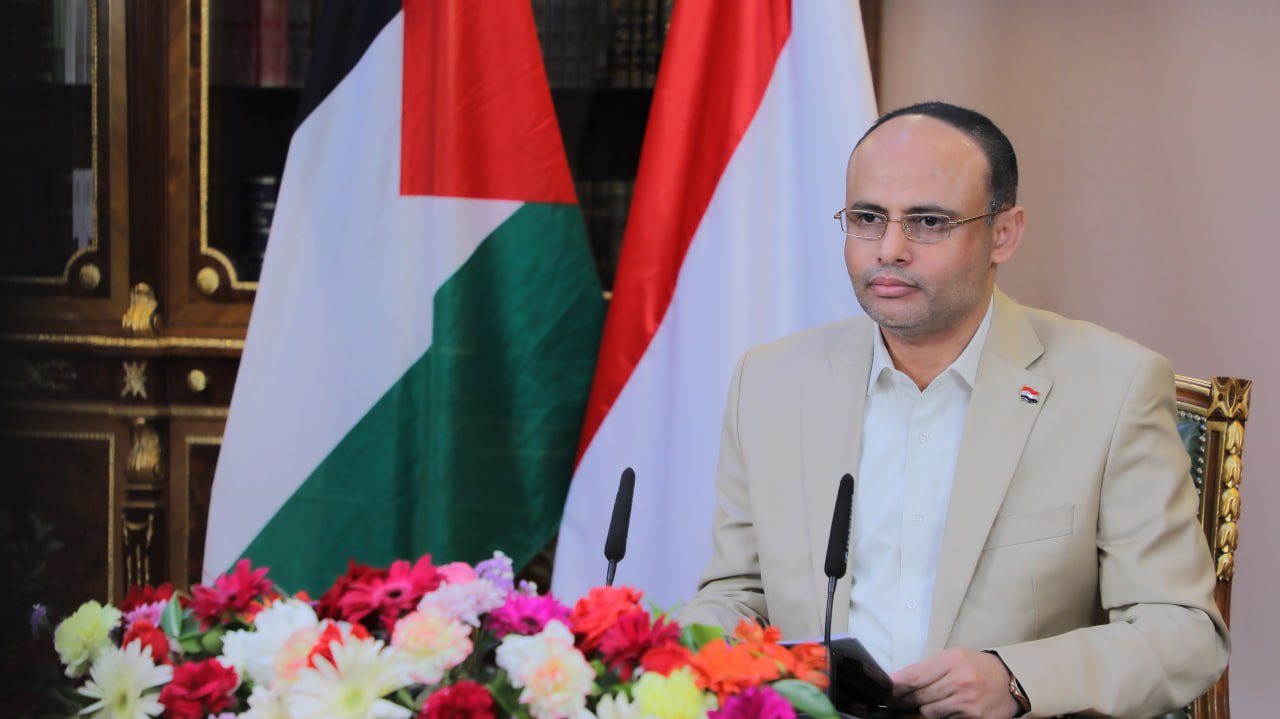Sanaa, Yemen - Despite assurances from Sanaa about being open to a just and honorable peace and helping the Saudi regime escape American blackmail, Riyadh continues to adopt a policy of procrastination to buy time, according to Yemeni officials. This has created a heightened state of readiness in the Yemeni camp to take necessary steps to restore the rights of the Yemeni people that the aggression coalition has admitted are legitimate but continues to neglect.
In recent messages from Sanaa by President Mahdi al-Mashat, Defense Minister Mohammed Nasser al-Atifi, and Chief of General Staff Major General Mohamed Abdulkareem al-Ghamari, Yemen expressed frustration with Saudi Arabia's ongoing stalling despite having agreed to hand over Yemen's rights. Riyadh's behavior seems aimed at gaining more time desired by the forces of aggression to rearrange their papers, opening an unnecessary door that could be full of deterrence, Yemen warned.
Continued Procrastination...The Danger of Miscalculation
In his speech on the eve of the 60th anniversary of the October 14 Revolution, President al-Mashat referred to the current Saudi behavior in the path of peace and war. However, al-Mashat made clear that the Saudi regime remains committed to a policy of procrastination and evasion to buy more time.
Al-Mashat said in his speech, "While we affirm our keenness for peace between us and the aggression coalition, we express our extreme resentment towards procrastination and reluctance to engage in confidence-building measures." This indicates that the peace process set in motion by Sanaa when it sent a negotiating team to Riyadh has not progressed further due to Saudi Arabia's evident and unchanging behavior.
In his speech, al-Mashat also sent a warning message to the Saudi regime, conveying aspects of the national reactions to the continued stalling and insistence on looting rights and confiscating the legitimate and just entitlements of the Yemeni people. Al-Mashat noted that Sanaa "considers the continued blockade not only an indication of non-seriousness but also an escalation and provocative criminal act that gives them full right to an appropriate and proportionate response, unless they see a rapid positive response." This suggests Sanaa will not grant the Saudis much time, especially since their behavior has proven a policy of playing for time to achieve suspicious goals. Also, given the long period Sanaa has already given Riyadh as a chance to escape American blackmail pushing towards escalation.
Two Final Options, One Outcome
The national warnings have not stopped at this point, as Defense Minister Major General Mohammed Nasser al-Atifi and Chief of Staff Major General Mohamed Abdulkareem al-Ghamari have indicated there will be decisive greater steps than enemies and their supporters imagine if political maneuvering continues.
In a congratulatory cable on the 60th anniversary of the October 14 Revolution, al-Atifi and al-Ghamari said: "If the enemy politically maneuvers or seeks partial solutions that do not respect sovereignty and absorb realities on the ground, those efforts will meet abject failure." This affirms that Riyadh’s current behavior may push Sanaa to initiate deterrent options, which may seem more painful than before given the massive and accelerating development of Yemeni military capabilities.
Given the sensitivity of timing and running out of patience, al-Ghamari and al-Atifi did not close the door to the Saudi regime over its stalling. They gave it a new conditional opportunity for a quick decision, stressing that the aggressors and procrastinators now have a short chance “to choose their fate, either to leave with what remains of their dignity or to wait for their unknown fate.” This message suggests the only choice regarding evasion, stubbornness and stalling is strategic military responses.
Regional Changes Unreliable, Our Forces Ready
With these developments, the Saudi regime should take advantage of remaining favorable opportunities to get out with the minimum losses, and not rely on regional and international variables. They are of no use and will not save it from Yemeni deterrence and its long arms, especially as the Yemeni armed forces have already declared their high readiness to keep pace with military developments in Yemen and the region. They have affirmed their ability to wage defensive battles across the geographic area involved in and supporting the aggression on Yemen, from the Gulf to the Ocean and beyond. The armed forces have also stated their readiness to carry out any military operations deep inside the Zionist entity.
Al-Atifi and al-Ghamari renewed conveying these messages of Yemeni power. They announced “the Yemeni armed forces are on high alert and readiness at the direction of Sayyid Abdulmalik Badreddin al-Houthi, so that we have the honor of participating in any tasks required by the stage.” They confirmed maximum readiness to keep pace with regional developments, especially Al-Aqsa Flood operation, which will sweep away the Zionist entity decisively.
Through these messages – especially since they are not meant as showmanship but as advice and proof – it is imperative for the Saudi regime to benefit from lessons taught over past years. It should take the shortest and safest path, especially since its options and choices have diminished and narrowed due to its aggressive policies during the years of aggression and blockade on Yemen. It now has only two choices: First, surrender to the legitimacy of the just Yemeni entitlements, or continue in its arrogance and stalling until deterrence comes to restore the looted rights. Either way, there is no alternative but to return Yemen’s and Yemenis’ rights, though the means may vary. The goal is one. The ball is now in Saudi Arabia's court to determine if the path forward is peace or war. It should know the remaining time is very short but enough to reach the safer road. Stalling no longer works.







